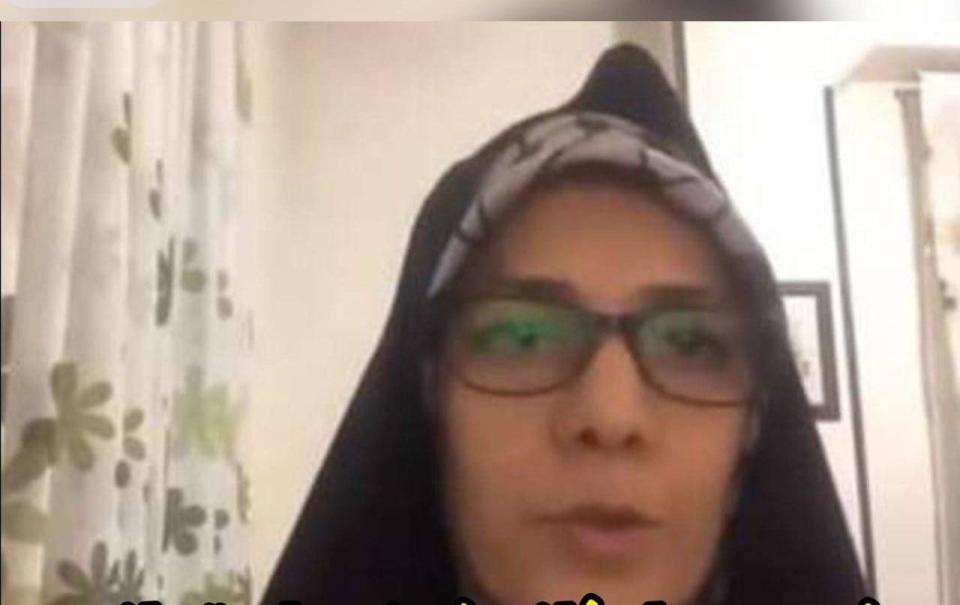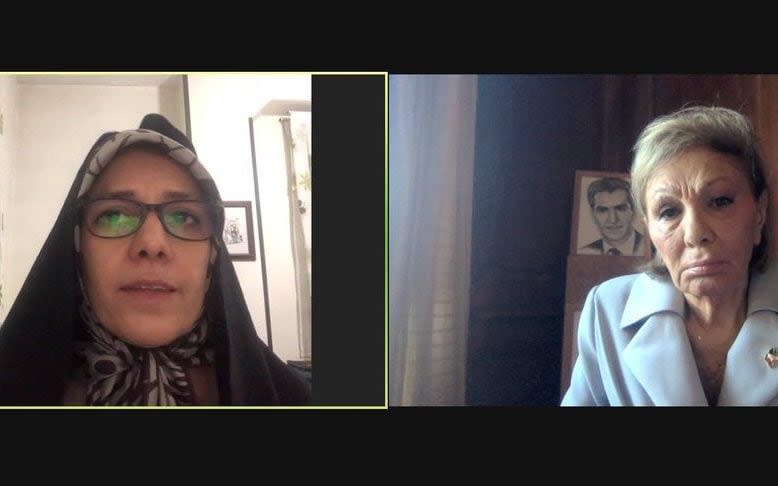Iranian security forces arrest niece of Ayatollah Khamenei

Iranian security forces have arrested the niece of the Supreme Leader Ayatollah Ali Khamenei after she spoke out in favour of the ousted pro-Western royal family.
Farideh Moradkhani, an activist who campaigns for the abolition of the death penalty, was detained on Friday outside her house and taken to the notorious Evin prison, according to the the Human Rights Activists’ News Agency of Iran (HRANA).
The 35-year-old has been a thorn in the side of Ayatollah Khamenei’s family for many years, campaigning for liberal causes that rub against the strict theocracy imposed on the nation by her uncle.
“Security forces searched Ms Mordakhani’s residence and took away many of her personal belongings. She has now called her family and informed them that she is being held in Ward 209 of Evin political prions”, HRANA said in a statement. No charges have been brought against her yet, it added.
Her arrest comes amid a growing clampdown on dissent as Iran’s economy falters under heavy US sanctions.

Exiled Iranian sources told the Telegraph that the probable cause for Ms Moradkhani’s detention was her statement of support for Iran’s old royal family, overthrown in the Islamic Revolution of 1979.
In an online event in October with former Queen Farah Diba, the widow of the last Shah, Ms Moradkhani praised the ex-royal as “mother of the nation” while celebrating her birthday.
“We wanted to offer you a birthday present but thought the best present would be our hearts to welcome you back to our country. Since your departure the flowers of our nation have weathered, and our young generation have lived in despair,” she said.
“We live in a parentless country, but I am certain that one day you will come back and will bring light and love to all of us in Iran” she added in the Live Zoom event.
The official website of Ayatollah Khamenei published an editorial last week criticising rising levels of nostalgia for the era of the pro-Western Shah. “Many Iranians now think that the rule of the Shah resembled the beauty and the Islamic Republic has been the Beast for the last 42 years,” it read, scornfully.
'Incompetence undermined faith in clerical system'
Iran’s deputy interior minister, Taghi Rostamvand, said Sunday that the inability of president Ebrahim Raisi’s government to solve the country’s numerous problems “has led to the general belief among the public that a clerical system of governance is completely incapable of running the country’s affairs and only a secular regime can do that”.
Iranians have protested against water shortages in recent months amid growing unhappiness at the failure of Mr Raisi's government to shore up the falling value of the Iranian rial.
Ms Moradkhani’s mother is the sister of Ayatollah Khamenei, who has crushed liberal protests against his rule since taking office in 1989. Lately he has sought to undo one of the world’s most successful campaigns to lower birth rates, calling on citizens to have as many children as possible while clamping down on abortion and previously free distribution of contraceptives.
Ms Moradkhani's father, Ali Tehrani, took his family into exile in Iraq in the 1990s after opposing Mr Khamenei’s “despotic rule”, in particular the mass execution of prisoners. He later returned and was sentenced to 20 years in prison.
The 209 Ward in Evin prison, where Ms Moradkhani is reportedly being held, is reserved for political prisoners and human rights organisations have documented torture in its solitary cells.
British aid worker Nazanin Zaghari-Ratcliffe suffered a breakdown after being held there for several months.
The administration of President Joe Biden has prioritised returning Iran into compliance with the deal limiting its ability to develop a nuclear weapon signed in 2015, but talks with Mr Raisi’s government have faltered.

